These migrants needed asylum and ended up in Rochester. What's happened since?
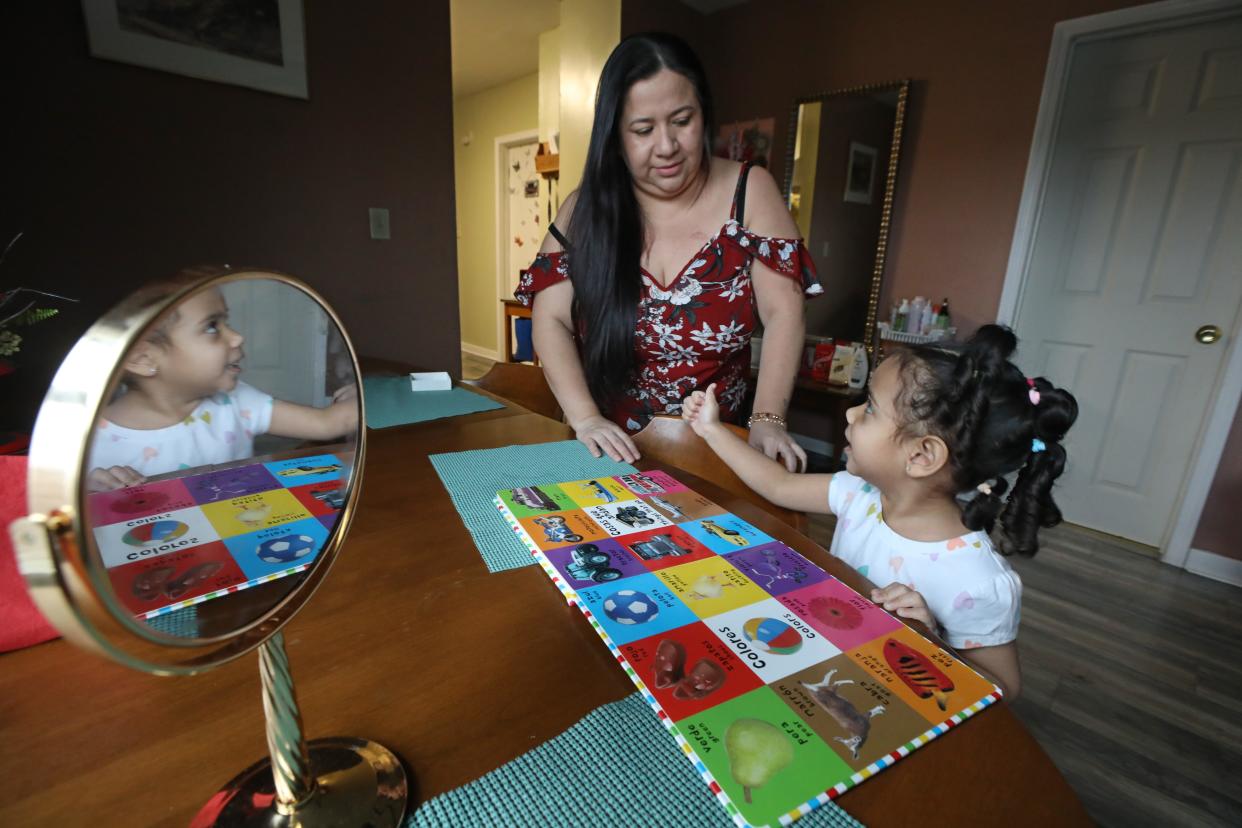
After a head-spinning and claustrophobic first few months in Rochester, Soody Martinez can see a way opening before her.
When the weather is good, she can walk her daughter Ashely to pre-kindergarten at Dr. Martin Luther King Jr. School 9 on North Clinton Avenue. Her husband found work.
The second-story apartment where she lives with Ashely, her husband and her sister Solmara is tiny, but it is theirs.
Their small family, asylum seekers from Nicaragua, was among the migrants who arrived in August 2023 at the Holiday Inn on State Street. Five months later, the controlled chaos of their arrival has transitioned to stability.
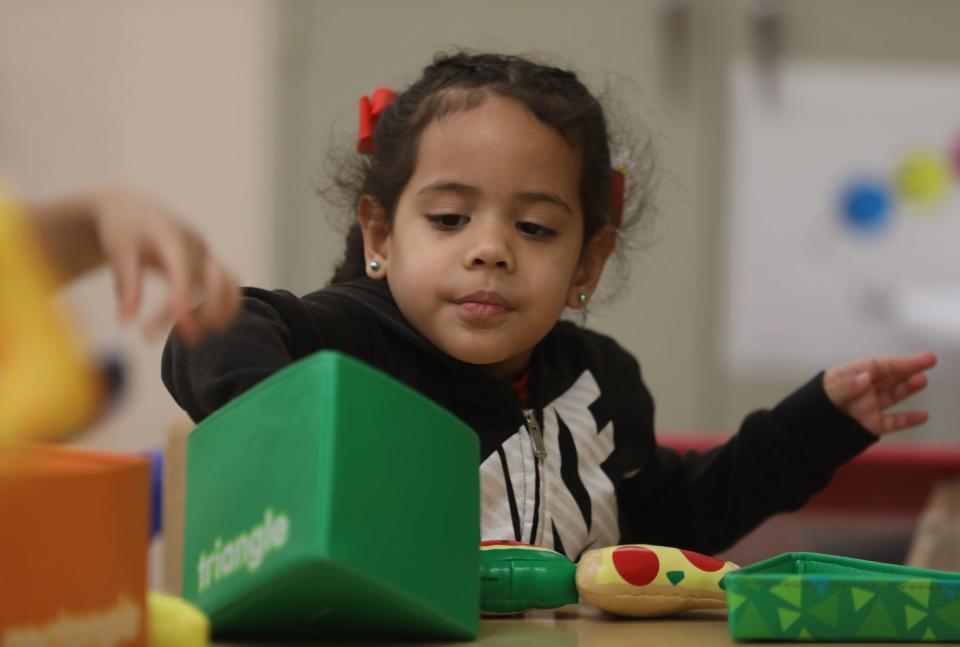
About 36 families have moved out of the hotel and into apartments throughout the city, Ibero-American Action League CEO Angelica Perez-Delgado said. That represents 145 people, half of them children. Another 200 or so people are still at the hotel, with more moving out every week, and new arrivals trickling in from New York City to replace them.
Those early arrivers now have their feet beneath them in Rochester.
They're studying English, enrolling their children in the Rochester City School District and finding work as soon as their applications are processed.
Immigrants who arrived in Rochester seek work, stability
"The first question they ask is: 'When can I apply to work?'" said Irene Sanchez, executive director of the Western New York Coalition of Farmworker Serving Agencies, the organization that has taken the lead on coordinating services for the migrants. "These aren’t people who come for public assistance."
Ashely is learning English faster than her parents. Meanwhile, Martinez' husband, Joslyn Berrios, qualified for a work permit in November and quickly found work. Martinez' sister Solmara intends to resume her studies in mechanical engineering. And Martinez has her own plans.
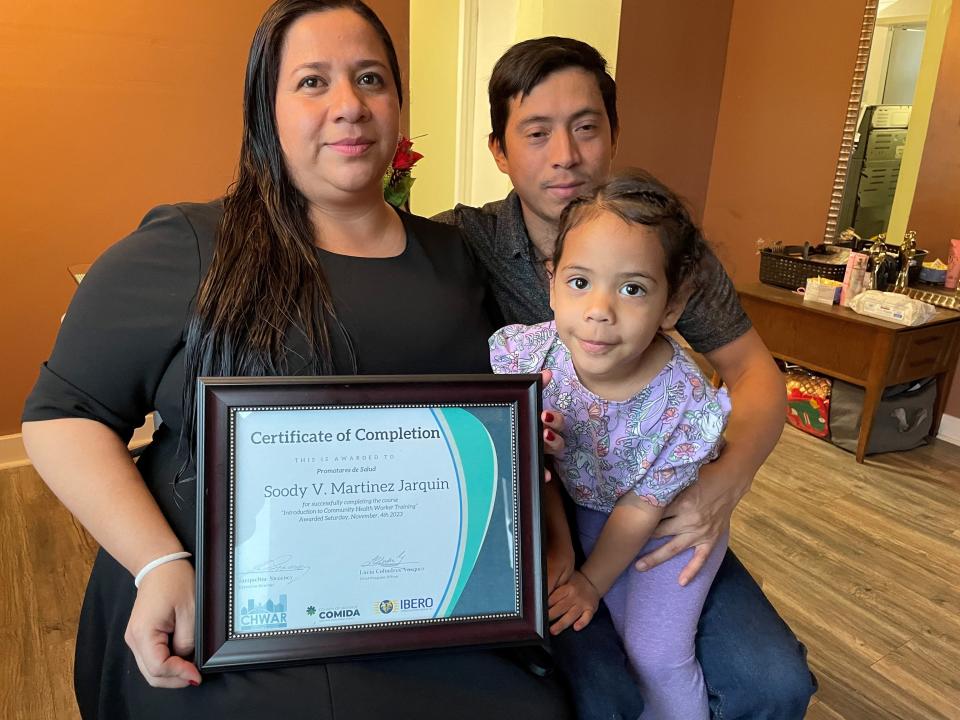
A sort of pan-Latino market and restaurant is what Martinez has in mind. A place for people from across Latin America to find a taste of home or to sample unfamiliar cuisine not already available in Rochester.
It's been forming in her mind since she took an entrepreneurship program offered through the Ibero-American Action League. She has connected with other Hispanic restaurateurs to learn the business and was offered a spot in a contest through the food incubator at the Commissary.
Before that gets off the ground, Martinez also completed a community health promoter training program. She'll help connect Spanish speakers in northeast Rochester with health resources available to them.
"We want to help other families coming behind us," she said in Spanish.
Early whirlwind fades as migrants form community
It has been more than five months since the first busload of 77 asylum-seekers arrived at the Holiday Inn in early August. Despite the best intentions from local governmental and non-profit entities, the early days were a whirlwind.
The hotel lobby served at first as a kind of triage center, with supplies and donations stacked and service providers shuttling between folding tables. The hotel was undergoing major renovations and State Street was torn up, lending a chaotic feel to the whole enterprise.
The first food contract was with an Italian caterer whose offerings sometimes bewildered the mostly Latin American and African clientele. Some of them resorted to eating at the Open Door Mission until a new caterer was secured.
"Folks were eating things they'd never eaten in their lives," Perez-Delgado said. "Bringing outside organizations in was also a challenge in the beginning."
More: 'People were dying all around us': Angolan family seeking asylum in Rochester shares story
As the initial tumult died down, families began to acclimate. Various advocacy groups organized trips to the Seneca Park Zoo, Seabreeze, baseball games and museums.
Most importantly, families began to move out of the hotel: about 80 people by the end of November, nearly twice that many by mid-January. They are staying in apartments that Ibero arranges and pays for with funds from the New York State Office of Temporary and Disability Assistance.
"Those families are integrating," Perez-Delgado said. "They’re beginning to find their own natural communities."
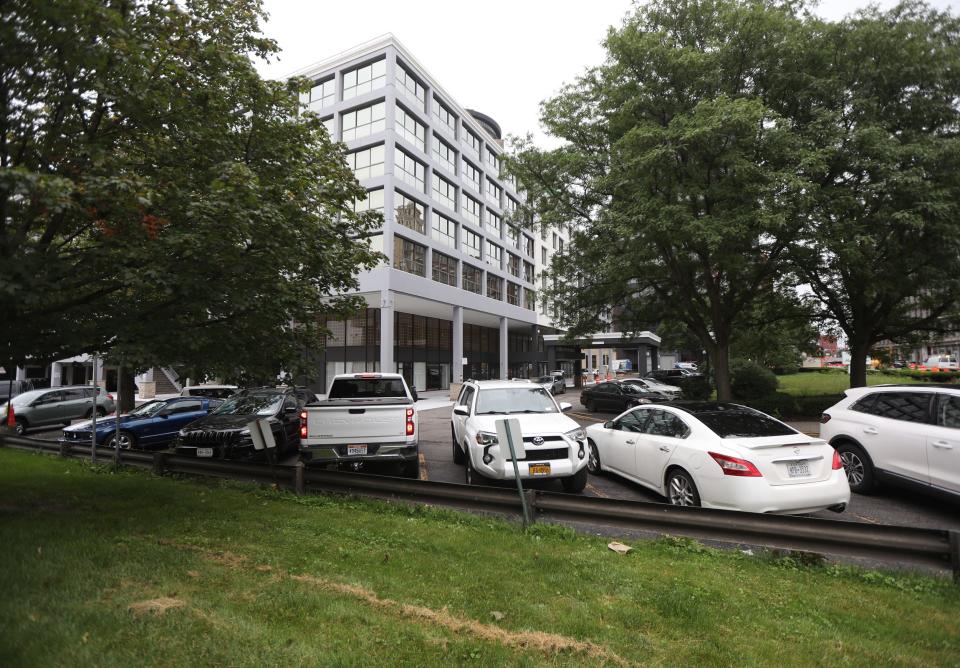
Dangerous trip to the United States
In a series of interviews conducted in Spanish late last year, several migrants in Rochester described their difficult paths to get here and their hopes for the future.
Naisa Urbina left Venezuela with her three children, now ages 14, 3 and 1. The route to the United States crossed through the Darien Gap, an exceedingly dangerous but unavoidable stretch of mountainous and thickly forested terrain between Panama and Colombia.
One day while she was walking, her 9-month-old daughter wrapped on her chest, she lost her footing while descending a steep rock and pitched forward. She managed to put her hand out and break her fall just before landing on the sleeping infant's head.
"I thank God, because if not I would have been the cause of my own daughter's death," she said, her face clouding over. "Thanks only to God that no one robbed us, no one hurt us, no one killed us in the jungle."
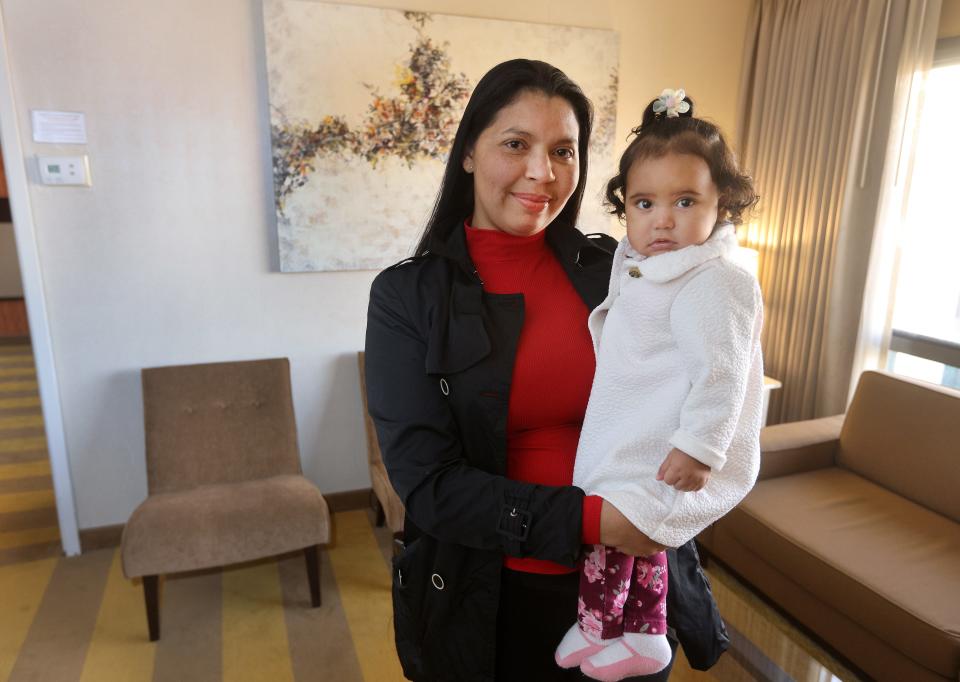
'I wasn't going back through the jungle'
Elis Bolivar also went through the Darien Gap on her way out of Venezuela. Her husband and 17-year-old son took turns carrying her 4-year-old daughter the entire way.
"We regretted the trip — but what could we do?" she asked. "We didn’t have any money to go back except for through the jungle again. I wasn’t going back through the jungle. We had to keep fighting."
Her daughter and Naisa Urbina's son now attend Anna Murray Douglass Academy School 12. They're still staying in the hotel, studying English and waiting for work authorization and a placement somewhere else.
"I'm very grateful, I say that all the time," Urbina said. "In Peru, in Chile, in Ecuador, we saw a lot of xenophobia. Here I can walk down the street and no one says a word to me."
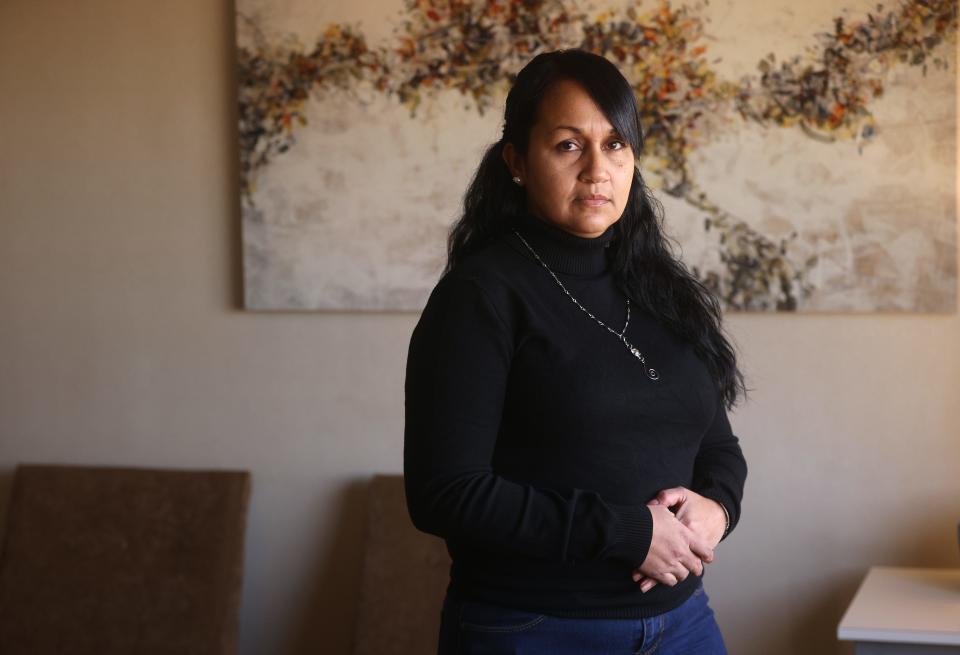
Kidnapped in a Mexican border town
Soody Martinez and Joslyn Berrios did not have to cross the Darien Gap but faced near-catastrophe in Mexico.
Berrios, who was traveling separately from his wife and daughter, was kidnapped in the border town of Laredo and held hostage with dozens of other men until his family could pay $10,000 to free him.
Martinez still has the phone message from the kidnappers on her phone.
"People are living in one of the poorest countries in the world, living on less than $200 a month," she said. "How can you come up with $10,000 in a week? It’s unthinkable."
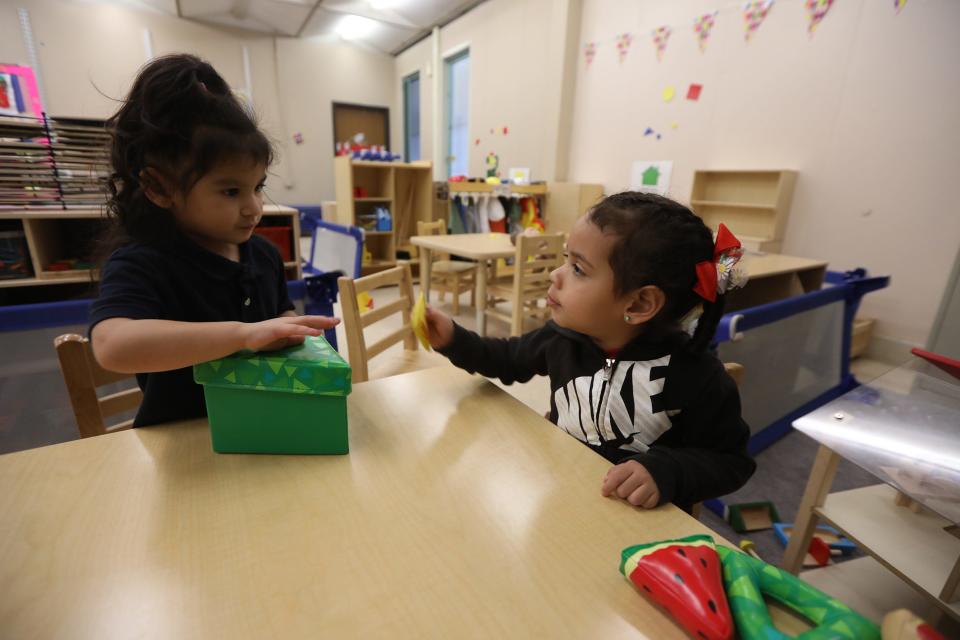
Unthinkable, but she did it. It took calling just about everyone she and her husband had ever known.
For their part, she and Ashley were able to cross into the United States from Juarez only after a doctor in the crowd noticed that Ashely's fingers were blue and helped her reach medics at the border.
"Migrants, we need this country," she said.
More busloads of migrants to Rochester unlikely
The asylum seekers in Rochester could fit into a high school auditorium. Only a few buses ever carried them here, and some of those people have since left. In New York City, meanwhile, almost 70,000 people are living in shelters or tents.
Perez-Delgado said governmental and non-profit agencies are pleased with the small scale of relocation efforts here.
"Our goal was to have an orderly integration of families into our community and not have 800 people piled up in the hotel and we don’t know what to do with them," she said. "Because we’re not being pounded with bus after bus after bus, we have really figured out how to do this in an orderly way and help families work toward self-sufficiency."
That orderliness is of little use to people sleeping on sidewalks in other cities, but New York Immigration Council Executive Director Murad Awawdeh said New York City has largely stopped contracting with upstate municipalities as it was last summer.
"You can't just move people where they don't want to go," he said.
Awawdeh pointed to a recent brief by the Immigration Research Initiative, estimating that after five years, upstate municipalities would see an additional $3.4 million in annual tax revenue for every 1,000 migrants and asylum-seekers who move there.
"Folks are getting the support they need, they’re integrating really well, kids are going to school and they’re already contributing back to society," he said. "It’s the immigrant story of New York. ... Maybe some of these localities should be advertising that they'd want more folks to come up."
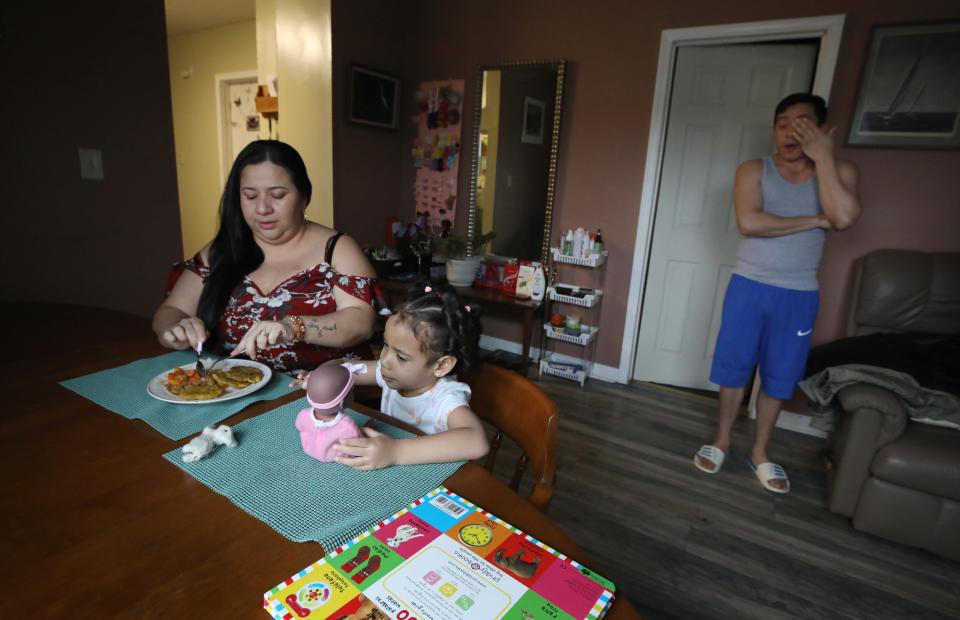
That is how Soody Martinez sees herself and her family: as assets.
Her husband Joslyn Berrios works an overnight janitorial shift and is glad to earn the money, though the hourlong bus ride before and after work is fatiguing.
When Martinez can start her business, she notes, it'll help other families care for themselves and pay taxes.
"We’ve seen so many organizations come together to help us, support us, bring us food and water and shelter and clothing," she said. "Now, my business: it will have employees."
Even her daughter, she said, was identified as a leader and a helper in her prekindergarten classroom.
It makes her swell with pride.
Great story: At NY's northern border, asylum seekers find hope in desperation at a rural mini mart
— Justin Murphy is a veteran reporter at the Democrat and Chronicle and author of "Your Children Are Very Greatly in Danger: School Segregation in Rochester, New York." Follow him on Twitter at twitter.com/CitizenMurphy or contact him at jmurphy7@gannett.com.
This article originally appeared on Rochester Democrat and Chronicle: NY immigration: Families make it to Rochester, but what is next?

